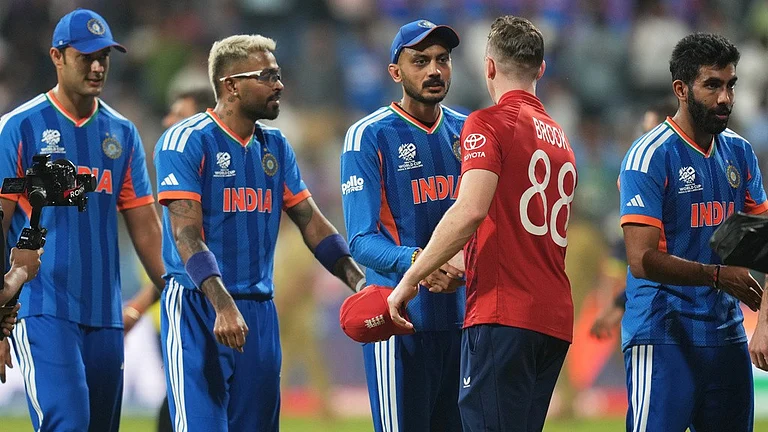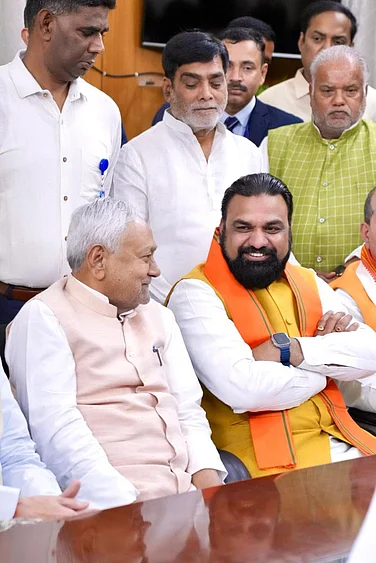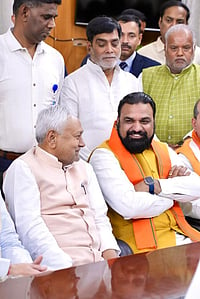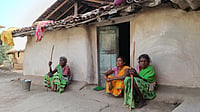The Bharatiya Janata Party (BJP) won the 2014 Jharkhand state elections defeating the Indian National Congress (INC), Rashtriya Janata Dal and Jharkhand Mukti Morcha (JMM).
Two years later, in 2016, the Jharkhand assembly passed amendments to two century-old laws—Chhotanagpur Tenancy (CNT), 1908 and Santhal Pargana Tenancy (SPT) Acts, 1949—for the easy transfer of tribal land for industrial use. The amendments were passed without any discussion amid protest inside and outside the assembly. It was estimated that the move would cause displacement of around four million tribals. Thousands of tribals from across the state hit the roads of state capital Ranchi demanding scrapping of proposed amendments. Police resorted to lathicharge and teargas to quell the protest.
“The tribals slowly realised that the government was interested in acquiring their land and selling these off to the industrialists,” says senior journalist and political expert Faisal Anurag.
Hemant Soren, the present chief minister of Jharkhand, was in the Opposition then. Keeping tribal issues at the core, a coalition of the JMM, Congress and RJD contested the elections in 2019, and won.
In its manifesto, the JMM talked about local tribal issues. And after coming to power, these issues continued to be at the core. For instance, on November 11, 2020, the Jharkhand government passed a resolution for the provision of a separate Sarna code for tribals.
Followers of Sarna faith regard themselves as belonging to a distinct religious group, and are nature worshippers. The holy grail of the Sarna faith is “Jal (water), Jungle (forest), Zameen (land)” and its followers pray to the trees and hills while believing in protecting the forest areas. Believers of Sarna faith do not practice idol worship. The followers are largely concentrated in the tribal belt states of Odisha, Jharkhand, Bihar, West Bengal, and Assam.
The indigenous people are nature worshipers and are not Hindus, Muslims or Christians. Several surveys and reports have indicated that over 50 lakhs tribal people in the entire country put their religion as Sarna in the 2011 census, although it was not a code.
The JMM-led coalition government also passed an amendment to the Khatiyan Bill. The bill defines the state’s locals on the basis of land survey records of 1932, popularly known as the ‘Khatiyan’. The Jharkhand assembly unanimously passed a bill of the Soren government to increase the reservation in government jobs and education institutions for Other Backward Communities (OBCs) in the state from 14 per cent to 27 per cent. The bill also increased reservation for Scheduled Tribes (STs) from 26 per cent to 28 per cent and SCs from 10 per cent to 12 per cent. With the proposed changes, the percentage of total reservation in the state stood at 77 per cent, including 10 per cent for economically weaker sections (EWS) among forward castes.
The timing of this was crucial. In his first year, the Soren government was accused of not doing enough. Later, Soren and his party were facing allegations of corruption in illegal mining case. Many of his associates were arrested and he was interrogated by the Enforcement Directorate (ED) on this issue.
Interestingly, the Sarna religion code and Khatiyan Bill were not part of the JMM manifesto in 2019. Why? Supriyo Bhattacharya, Secretary General, JMM, says: “These two have always been a part of our agenda, since the time Jharkhand was formed as a separate state. The state was formed based only on this tribal spirit. So, it is quite obvious that our focus area will remain on these issues. The indigenous tribal community forms the mass base of the state. We are answerable to them. So these issues need to be focussed.”
Ravi Prakash, a senior journalist, who has been covering the state assembly elections for long, says: “This (the tribal community) is a big trump card for Soren. None of the governments in the past 23 years has addressed their issues.”
“The day the Bill regarding the Sarna religion code was passed, there was a huge celebration at the Chief Minister’s residence. In Jharkhand, the lands of the tribals have been illegally acquired and houses have been constructed on them. The people who are doing this are mostly outsiders. Most of the people holding high posts in government jobs are non-tribals. It becomes obvious that whoever tries to implement the 1932 Khatiyan Bill will become a saviour for the tribals. Hemant Soren has been hailed as a hero because of these decisions,” he adds.
What about the BJP? If the BJP could win in 2014, why did it not win in 2019?
In 2019, the BJP did not mention Hindutava to be a part of it manifesto but Prakash is of the opinion that its rallies and campaigns remained focused on this. While Prime Minister Narendra Modi addressed nine public gatherings; Home Minister Amit Shah addressed eleven rallies. Raghuvar Das, who was the chief minister of Jharkhand from 2014 and 2019, addressed 51 meetings. They were vocal about issues like Article 370, Ram temple and the Citizen Amendment Bill.
On the contrary, the JMM had kept all the local issues at the centre of discussion during such public meetings and gatherings. Prakash believes that issues raised by Soren will act like as masterstroke in the upcoming elections, deflating the Hindutava agenda.
“Local issues have always dominated the Hindutava agenda in Jharkhand. The indigenous and tribal population has been very close to their language and culture,” says Faisal.
One has to understand that save Gujarat and Uttar Pradesh, the BJP has lost elections in Jharkhand, Rajasthan, Chhattisgarh, Bengal and Delhi. None of the southern states have BJP in power. In 2015 Bihar elections, the margin was very narrow. The RJD emerged as the biggest party. Karnataka elections have shown that the Hindutava Agenda will not be working for BJP. I believe that in Jharkhand elections, local issues will predominate, says Faisal.
Former chief minister Babu Lal Marandi has been very actively involved in the Opposition. It is believed that the BJP will be projecting him as the chief ministerial candidate next. Marandi has been accusing Soren of corruption. According to him, the decisions taken by Soren will not affect the upcoming elections.
Speaking to Outlook, he says: “His decision on reservation has not borne any fruit. Youths can still be seen on road. The matter of Sarna is not something new. We have played a major role in enclosing the religious place ‘Sarna’ (sacred grove) and protecting the followers of the religion. These issues are not going to impact the elections. If somebody is happy taking this decision, let him be.”
On the local issues to be taken up for the next elections, he says: “We will highlight Modi government’s achievements at the Centre. We will also highlight the work done by the BJP when it was in power in the state. Besides, we will be visiting each and every household and this time it will be done on a large scale. Our focus will be on development.”
On the promises made in the manifesto, the JMM general secretary, Bhattacharya, says: “We could not do any work in the first two years due to Corona. One can very well see that when we started working, there were central agencies interfering in our work. Unless and until the government is stable, it will not be comfortable. How do we work like this? We are putting all our efforts in fulfilling our promises made in the manifesto. We are working in this direction.”
In three years, there are certain promises that have been fulfilled. However, the Sarna code, Khatiyan Bill and increasing reservation are some issues that have not seen the light of the day. The proposal of tribal Sarna Religion code is still pending with the central government. The 1932 Khatiyan and reservation bills have been sent back by the Governor. These have been returned one after the other in a gap of three months for reconsideration.
(Translated by Kaveri Mishra)























